Medicaid is a Federal program that is administered by the individual States. Its purpose is to pay the medical bills of the indigent. Presently, Medicaid is available for others, but for the purposes of this article, I will only describe the program for the indigent, over the age of sixty-five, in New Jersey. This is the program that pays for nursing home care.
The Purpose of Medicaid
If you are over age 65, and have less than $2,000.00 in assets, and less than $2,199.00 in monthly income (2016), you are Medicaid eligible. Medicaid will pay for your nursing home costs. You can see how this program might be necessary when nursing home costs in New Jersey are pushing upward of $10,000.00 a month. The wrinkle in the program is the desire of most people to leave something financial for their children or grandchildren, out of their lifetime of hard work. If nursing home care becomes necessary, all of this money will be spent on nursing home care very quickly; there will be none for the children. This is such an issue, that, if they had their way, many people would gift large sums of money and hard assets to their children and grandchildren, prior to entering a nursing home. They would then apply for Medicaid benefits to pay for care, leaving the costs to the taxpayers. But, Congress saw this coming.
Enter the Five-Year Look-Back Period
When you apply, Medicaid requires that you produce five years of bank statements, investment reports, HUD-1 documents from real estate sales and many other items. I have never filed a Medicaid application where the agency did not require statements for every single month over the previous five years, even for accounts which were closed during the five-year period. Start collecting them now.
What are They Looking For?
The County Social Service employee will review your documents to determine if you have deliberately impoverished yourself in order to qualify for Medicaid. Was money or property gifted to the children or grandchildren? What about those funny checks made out to “cash”? Was the house transferred to the kids for one dollar? If so, you will be penalized.
The gifts will be totaled and divided by 9535.62 (2015), the “penalty divisor”. This will determine the number of months you will be denied benefits. Any fraction will be rounded up to a full month. The penalty period will begin when you are otherwise eligible for benefits.
In short, if “gifts” were given to children or grandchildren in the five years preceding the application, it will be said that the applicant deliberately gave money away in order to qualify for Medicaid. The applicant will be penalized, that is, denied Medicaid benefits for a period of time. Then your family will either have to pay the nursing home with their own funds or take the applicant home. Obviously, this is to be avoided.
What About the “Stay-at-Home Spouse”?
With this spending down to $2,000.00, how is a spouse, not needing nursing home care, to survive? The so-called, “Community Spouse” can have up to $119,220.00 in personal assets and unlimited monthly income, and not have any effect on the nursing home spouse’s Medicaid application. Once Medicaid benefits are granted, the Community Spouse can have more assets without a problem. But, the wrinkle here is how the Spend Down works.
Spending Down to Qualify for Medicaid
When one applies for Medicaid, County Social Services list the assets of both spouses: the one needing nursing home care and the one staying home. The values will be totaled and divided on paper into two equal shares. One share will be assigned to each spouse. The nursing home spouse must spend their share down to $2,000.00; the Community Spouse must spend their share down to $119,220.00. When those numbers are reached, the nursing home spouse will be Medicaid eligible on the first day of the following month.
In New Jersey, almost everything is included in the spend-down: IRA’s, 401(k)’s, the cash value on life insurance policies, everything. But, if there is a Community Spouse, the house is exempt. Yet, Medicaid will place a lien on the property for the amount of care it has spent. This lien must be paid back when the property is sold.
What an Elder Care Attorney Can Do For You
Like the house for the Community Spouse, there are certain exemptions and allowances afforded to people under the Medicaid regulations. If you are not knowledgeable of these, you could lose them. For example, if the Community Spouse has income less than $1,966.25, he or she is eligible to obtain a Minimum Monthly Maintenance Needs Allowance (MMMNA), which will help them make ends meet. Medicaid annuities can be purchased with assets that otherwise would go to the nursing home and can provide income to the Community Spouse. The spend down can be accomplished, too, by buying a prepaid funeral plan, spending money on home repairs or a new car. These exemptions are not for everyone and should not be attempted on your own. Regulations change and some plans are riskier than others. An Elder Care Attorney can help you navigate these difficult waters and build a plan which will meet your family’s needs.
Robert J. Shanahan, Jr. Esq. focuses his practice in estate planning, elder law and probate matters. Mr. Shanahan additionally practices in business law and non-profit matters. He is a trained, experienced mediator and offers dispute resolution services, particularly for those arising from probate and elder law matters. Additionally, Mr. Shanahan’s firm, Law Offices of Robert J. Shanahan, Jr., LLC, offers a breadth of additional services to families and businesses throughout central New Jersey.
Mr. Shanahan received his Juris Doctor from the Temple University School of Law in 1985, and obtained licensure in New Jersey in the same year. He received a Bachelor of Arts degree in History in 1981 from William Paterson University, with honors. Robert is a member and Past President of the Hunterdon County Bar Association, and is a member of the New Jersey State Bar Association, and its Elder Law and Disability Section. He is also active in the National Academy of Elder Law Attorneys. Robert is a member of the Hunterdon Medical Center’s Bio Ethics Committee and was awarded a Five Star Financial Services Professional Award for 2016.
You may contact Bob at (908) 751-1551, or [email protected].


